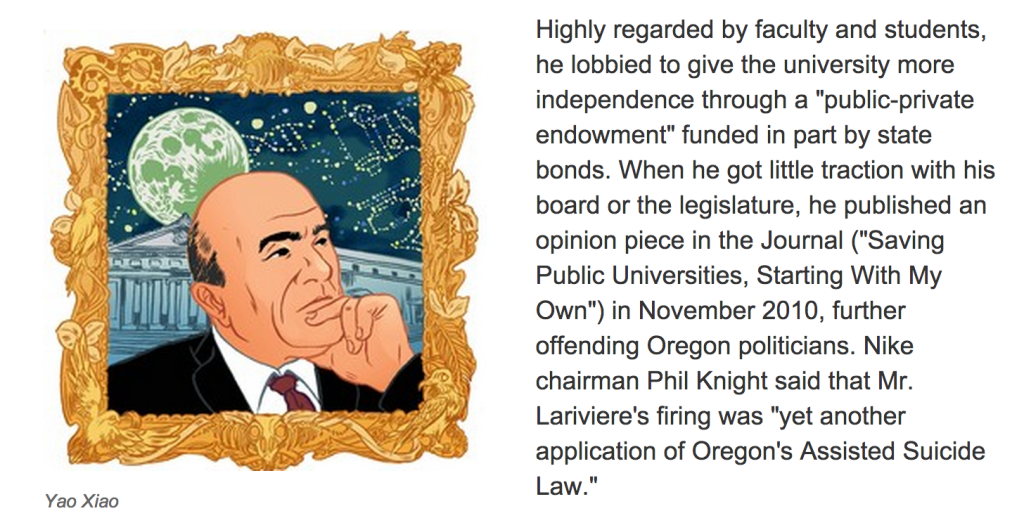According to today’s WSJ story, Richard Lariviere is busy. But you know the UO Trustees want him, or someone like him, to lead UO. And I’m guessing that plenty of the 6700 faculty, staff, alumni and boosters who signed the petition to protest the 2011 firing of Lariviere are telling UO’s new Trustees that a timid paper pusher like Gottfredson is not what they want:
But first we’ve got to get rid of the interminably passive-aggressive Mike Gottfredson:
5/19/2014 update: Why Mike Gottfredson will be resigning as UO President
